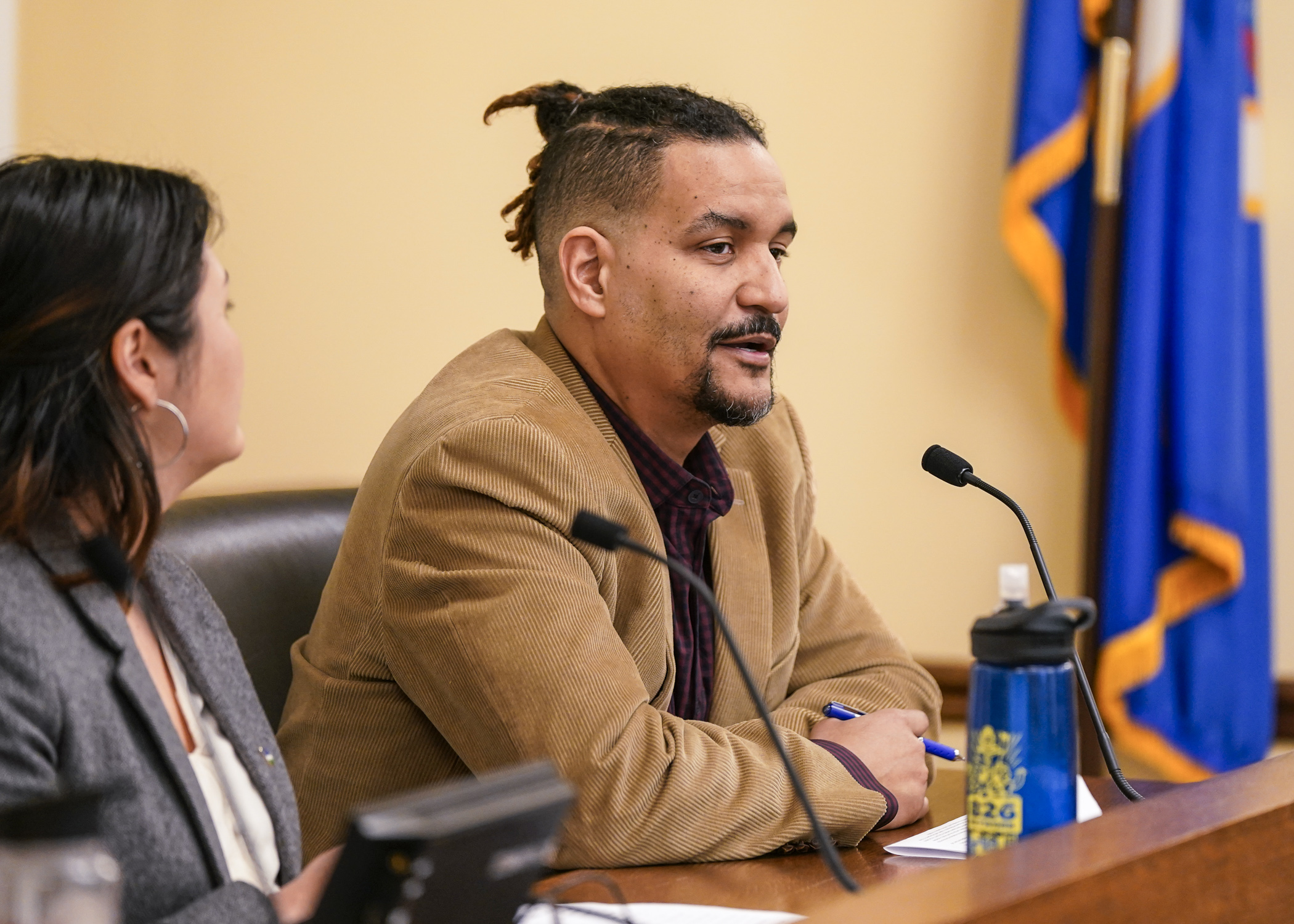House bill to require ethnic studies in Minnesota schools clears first committee stop

During her freshman year of high school, Rep. Samantha Sencer-Mura (DFL-Mpls) took a world studies class.
But that was a misnomer – by year’s end, the course had only covered European history and culture. She approached her teacher one day after class, asking when she would learn about other continents and cultures.
The teacher’s response? ‘Oh, you can learn about the rest of the world in college.’
And while Sencer-Mura did go on to attend college and study other peoples and cultures, the experience has stayed with her. She now sponsors HF1502, which would revise the statewide academic standards to include ethnic studies.
“The best education should offer students mirrors and windows,” she said. “Mirrors to be able to see themselves … reflected in the curriculum and windows to be able to understand other experiences, other cultures.”
Ethnic studies would bring these mirrors and windows into the classroom.
The House Education Policy Committee approved the bill Tuesday, sending it to the House Education Finance Committee, as amended, via a split-voice vote.
As defined in the bill, ethnic studies “means the critical and interdisciplinary study of race, ethnicity, and indigeneity with a focus on the experiences and perspectives of people of color within and beyond the United States. Ethnic studies analyzes the ways in which race and racism have been and continue to be powerful social, cultural, and political forces, and the connection of race to other groups of stratification, including gender, class, sexuality, religion, and legal status.”
Sencer-Mura’s proposal would mandate the inclusion of ethnic studies as one of many disciplines that schools must teach within the larger umbrella of social studies. Students would be required to complete an ethnic studies course in order to graduate high school, with the requirement first being applied to those beginning ninth grade in the 2025-26 school year.
Local districts and charter schools would also have to offer ethnic studies classes in elementary and middle schools by the beginning of the 2027-28 school year.
An Ethnic Studies Working Group would be established to advise the Department of Education on developing a statewide model curriculum. Its 25 members would be comprised of teachers, administrators, public-school parents, public-school students and “five community members with a demonstrated commitment to ethnic studies.”
An exact appropriation request has not yet been determined. It will presumably be ready for discussion at the bill’s next committee stop.
The proposal provoked a spirited debate among testifiers and members.
Joselin Navarro Cano didn’t open her first Latino history book until she went to the University of Minnesota. She is now an ethnic studies teacher in Minneapolis and supports the bill wholeheartedly.
“I believe that ethnic studies empowers students to become active learners and citizens,” she said. “Learning about themselves really changes students in a positive way. I believe ethnic studies fosters understanding and empathy, which I believe will create a better world.”
In contrast, a consortium of organizations representing school boards and administrators offered written testimony criticizing the addition of ethnic studies as a requirement for high school graduation. The letter notes that the department’s proposed updates to the social studies standards include language referencing ethnic studies, while also maintaining that “curriculum decisions are best made at the local level.”
These concerns were echoed by Rep. Peggy Bennett (R-Albert Lea). While commending Minneapolis on developing a great ethnic studies program that is spreading organically to other schools, she cautioned against overly burdening local districts with more legislative directives.
“The study of cultures and ethnicities is incredibly important,” she said. “But this goes too far in the mandating. Let’s lead by showing how instead of mandate.”
Sencer-Mura countered that she doesn’t see her proposal as a mandate – rather, she sees it as ensuring access to this field of study for all Minnesota students.
Related Articles
Search Session Daily
Advanced Search OptionsPriority Dailies
Speaker Emerita Melissa Hortman, husband killed in attack
By HPIS Staff House Speaker Emerita Melissa Hortman (DFL-Brooklyn Park) and her husband, Mark, were fatally shot in their home early Saturday morning.
Gov. Tim Walz announced the news dur...
House Speaker Emerita Melissa Hortman (DFL-Brooklyn Park) and her husband, Mark, were fatally shot in their home early Saturday morning.
Gov. Tim Walz announced the news dur...
Lawmakers deliver budget bills to governor's desk in one-day special session
By Mike Cook About that talk of needing all 21 hours left in a legislative day to complete a special session?
House members were more than up to the challenge Monday. Beginning at 10 a.m...
About that talk of needing all 21 hours left in a legislative day to complete a special session?
House members were more than up to the challenge Monday. Beginning at 10 a.m...